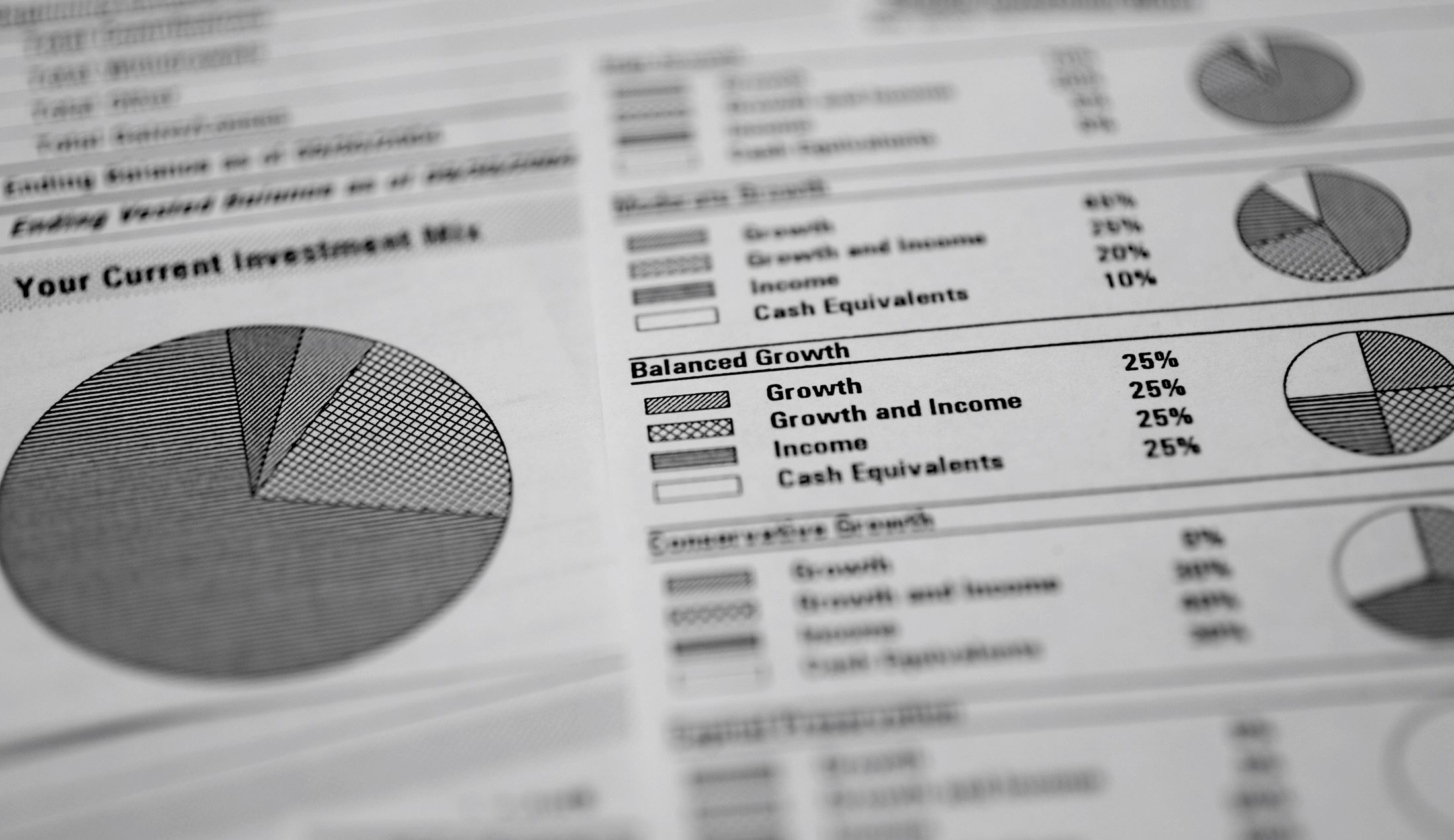

Finance
What Happens To My 401K During A Recession
Modified: February 21, 2024
Learn how a recession can impact your 401K and discover strategies to protect your finances during uncertain times. Understand the effects of financial downturns on retirement savings.
(Many of the links in this article redirect to a specific reviewed product. Your purchase of these products through affiliate links helps to generate commission for LiveWell, at no extra cost. Learn more)
Table of Contents
- Introduction
- What is a 401K?
- How Does a 401K Work?
- Understanding Recession
- Impact of Recession on 401K
- Market Volatility and Investment Losses
- Steps to Protect Your 401K During a Recession
- Reviewing Your Investment Strategies
- Rebalancing Your Portfolio
- Considerations for Contribution and Withdrawals
- Seeking Professional Financial Advice
- Conclusion
Introduction
A recession is a challenging economic situation that can have a significant impact on individuals and their finances. During a recession, people often worry about the stability of their investments and retirement savings. One common concern is what happens to their 401K accounts, which are a popular retirement savings vehicle for many individuals.
In this article, we will explore what a 401K is, how it works, and what happens to it during a recession. We will also discuss strategies to protect your 401K during these uncertain times.
Understanding the dynamics of a 401K and the potential impact of a recession on these accounts is essential for every investor. By taking proactive steps to safeguard your 401K, you can minimize potential losses and ensure your retirement nest egg remains secure.
So, let’s dive in and learn more about the fascinating world of 401Ks and how they are affected by recessions.
What is a 401K?
A 401K is a type of retirement savings plan offered by employers to their employees. It gets its name from the section of the Internal Revenue Code that governs such plans. The primary purpose of a 401K is to provide employees with a tax-advantaged way to save for their retirement.
With a 401K, employees can contribute a portion of their pre-tax income into the account, which grows tax-free until retirement. In some cases, employers also make matching contributions to the employee’s 401K. These matching contributions are essentially free money and serve as an additional incentive for employees to save for retirement.
One of the key advantages of a 401K is its flexibility. It allows participants to choose from a range of investment options, including stocks, bonds, mutual funds, and more. The specific investment options available will depend on the plan provided by the employer. Participants can allocate their contributions across these investment options based on their risk tolerance and financial goals.
Another significant advantage of a 401K is the ability to defer taxes. Since contributions are made with pre-tax dollars, they lower your taxable income for the year. Taxes are only due when you withdraw funds from the account, typically during retirement when your tax bracket may be lower.
It is important to note that there are contribution limits and withdrawal restrictions associated with 401Ks. The Internal Revenue Service (IRS) sets these limits to ensure that the plans are primarily used for retirement savings and not for short-term financial needs.
Now that we have a basic understanding of what a 401K is, let’s explore how it works and the impact of a recession on these accounts.
How Does a 401K Work?
A 401K works by allowing employees to contribute a portion of their salary into a retirement savings account. These contributions are typically deducted from the employee’s paycheck before taxes are applied, which can provide immediate tax savings. The funds in the 401K account then grow tax-free until they are withdrawn during retirement.
Employers may also offer a matching contribution, which is essentially free money. For example, an employer might match 50% of an employee’s contributions up to a certain percentage of their salary. This matching contribution is subject to specific rules set by the employer and can significantly boost the employee’s retirement savings.
The specific investment options available within a 401K can vary based on the plan offered by the employer. Generally, participants have the choice to invest in a range of options such as stocks, bonds, mutual funds, and target-date funds. It is crucial to carefully consider the available investment options and diversify the portfolio to manage risk effectively.
One key feature of a 401K plan is the concept of vesting. Vesting determines how much of the employer’s contribution the employee is entitled to if they leave the company before being fully vested. There are typically vesting schedules that outline the percentage of the employer’s contribution that becomes the employee’s over time.
Contributions to a 401K are subject to annual limits set by the IRS. For 2021, the maximum contribution limit is $19,500 for individuals under the age of 50. Additionally, individuals aged 50 and above can make catch-up contributions of up to $6,500. These limits are set to ensure that 401K plans are primarily used for retirement savings and not for immediate financial needs.
It is essential to regularly review and monitor your 401K account to ensure it aligns with your retirement goals. This may involve adjusting your contribution amount, reallocating your investments, and considering the potential impact of market conditions on your account.
Now that we have a better understanding of how a 401K works, let’s delve into the potential impact of a recession on these accounts and what steps you can take to protect your savings.
Understanding Recession
A recession refers to a period of significant economic decline and contraction. It is characterized by a decrease in economic growth, business activity, and employment. During a recession, there is a decline in consumer spending, business investments, and overall economic output.
Recessions are a natural part of the economic cycle, and they can be triggered by various factors such as financial crises, market imbalances, or external shocks. The duration and severity of a recession can vary, ranging from a few months to several years.
During a recession, GDP (Gross Domestic Product) declines, unemployment rates rise, and businesses may face financial challenges. Consumers may experience reduced income, job insecurity, and overall financial stress.
One of the key indicators economists use to determine if the economy is in a recession is negative GDP growth for two consecutive quarters. However, the National Bureau of Economic Research (NBER) officially declares recessions based on a broader set of factors, including employment, income, and industrial production data.
Recessions can have a significant impact on financial markets, including stock prices, bond yields, and commodity prices. Market volatility typically increases as investors react to the economic uncertainty and adjust their investment strategies accordingly.
It is important to note that while recessions can be challenging for individuals and businesses, they also create opportunities for growth and innovation. Governments and central banks often implement measures to stimulate the economy and mitigate the impact of a recession.
Now that we have a better understanding of what a recession is, let’s explore the potential impact of a recession on 401K accounts and how to protect your savings during these uncertain times.
Impact of Recession on 401K
During a recession, 401K accounts can be significantly impacted due to the overall decline in the financial markets. The value of investment portfolios may decrease as stock prices drop, bond yields fluctuate, and market volatility increases.
One of the key factors affecting 401K accounts during a recession is market volatility. The stock market tends to experience increased volatility during economic downturns, which can result in significant fluctuations in the value of stocks and mutual funds held within 401K accounts. This volatility can lead to investment losses and a decline in the overall value of the account.
Additionally, during a recession, the value of bonds may fluctuate or decline due to changes in interest rates. This can also impact the performance of 401K accounts that include bond investments.
Unemployment rates tend to rise during a recession, which can further impact 401K accounts. Workers who lose their jobs may be tempted to withdraw funds from their 401K to cover immediate financial needs, resulting in early withdrawals and potential tax penalties. Withdrawing funds prematurely can also hinder long-term growth potential, as the withdrawn funds are no longer invested and benefiting from compounding returns.
Moreover, employer contributions may be affected during a recession. Companies facing financial difficulties may reduce or suspend their matching contributions to employee 401K accounts. This can reduce the overall growth potential of the account, making it even more crucial for individuals to maximize their personal contributions.
It is important to note that while recessions can negatively impact 401K accounts, they are typically temporary in nature. Historically, the stock market has recovered from downturns and generated long-term positive returns. This highlights the importance of staying invested and maintaining a long-term perspective during challenging economic times.
Awareness of the potential impact of a recession on your 401K is crucial for making informed decisions and taking steps to protect your retirement savings. In the next section, we will discuss several strategies to safeguard your 401K during a recession.
Market Volatility and Investment Losses
During a recession, market volatility tends to increase, which can lead to investment losses and fluctuations in the value of 401K accounts. Understanding how market volatility affects your investments is crucial for managing your 401K during challenging economic times.
Market volatility refers to the rapid and significant fluctuations in stock prices, bond yields, and other investment values. These fluctuations are driven by various factors, including economic indicators, investor sentiment, and global events. In times of recession, market volatility can be particularly heightened as investors react to economic uncertainty and adjust their investment strategies.
Investment losses can occur when the value of stocks, bonds, and other assets in your 401K declines. This can be a result of market downturns, economic factors, or changes in specific industries or companies. It is important to remember that investment losses are a normal part of investing and can be temporary.
While it may be tempting to react to market volatility and try to time the market, it is generally not advisable. Trying to time the market by selling assets during a downturn and buying back in when the market recovers is a speculative strategy that is difficult to execute successfully. Research has shown that attempting to time the market often leads to missed opportunities and lower returns in the long run.
A more prudent approach is to stay invested and maintain a diversified portfolio. Diversification helps to spread risk by investing in a mix of assets across different sectors and geographic regions. This can help mitigate the impact of volatility, as the performance of different types of assets may vary during market downturns.
Regularly reviewing your investment portfolio and rebalancing it as needed is also important during times of market volatility. Rebalancing involves adjusting the asset allocation in your portfolio to bring it back in line with your original targets. This ensures that you are not taking on excessive risk or missing out on potential gains.
It is important to consult with a financial advisor or investment professional who can provide guidance on navigating market volatility and managing investment losses. They can help you develop a customized investment strategy based on your risk tolerance, financial goals, and market conditions.
Remember, market volatility and investment losses are part of the investing journey. By staying disciplined, diversifying your portfolio, and seeking professional advice, you can navigate through market downturns and protect your 401K during a recession.
Steps to Protect Your 401K During a Recession
Protecting your 401K during a recession is essential for safeguarding your retirement savings and ensuring long-term financial security. While it is impossible to completely shield your investments from the impact of a recession, there are several proactive steps you can take to mitigate potential losses and navigate through challenging economic times.
1. Reviewing Your Investment Strategies: Start by reviewing your investment strategies and asset allocation within your 401K. Assess the level of risk in your portfolio and make adjustments if necessary. Consider diversifying your investments across different asset classes to spread risk and potentially benefit from areas of the market that may perform well during a recession.
2. Rebalancing Your Portfolio: Regularly rebalance your portfolio to maintain your desired asset allocation. Rebalancing involves selling investments that have performed well and buying those that have lagged, bringing your portfolio back in line with your original targets. This helps to manage risk and ensure that you are not overly exposed to any particular investment.
3. Considerations for Contribution and Withdrawals: Evaluate your contribution and withdrawal strategy. During a recession, it may be tempting to reduce or stop your contributions to your 401K. However, maintaining regular contributions, even at a lower amount, can help take advantage of dollar-cost averaging and potentially buying investments at lower prices. On the other hand, carefully consider your options before making early withdrawals from your 401K, as this can have long-term negative effects on your retirement savings.
4. Seeking Professional Financial Advice: Consult with a financial advisor or investment professional who can provide personalized guidance. They can help you assess your risk tolerance, adjust your investment strategy, and make informed decisions based on market conditions. A professional’s knowledge and expertise can be invaluable during times of economic uncertainty.
5. Remain Calm and Stay the Course: It is essential to remain calm and resist the urge to make impulsive investment decisions based on short-term market fluctuations. Trying to time the market or make drastic changes to your portfolio can often do more harm than good. Stick to your long-term investment plan and maintain a disciplined approach.
6. Continuously Educate Yourself: Stay informed about market trends, economic indicators, and financial news. Knowledge is power, and by keeping yourself up to date, you can make more informed decisions about your 401K and adjust your strategy as needed. Take advantage of educational resources, webinars, and seminars to deepen your understanding of investing during a recession.
Remember, while a recession may create uncertainty and volatility in the financial markets, it is important to maintain a long-term perspective and focus on your retirement goals. By implementing these steps and staying proactive, you can protect your 401K and increase the likelihood of achieving a secure and comfortable retirement.
Reviewing Your Investment Strategies
During a recession, it is crucial to review your investment strategies to ensure they are aligned with your financial goals and risk tolerance. Here are some key steps to consider when reviewing your investment strategies:
1. Assess Your Risk Tolerance: Take the time to evaluate your risk tolerance, which refers to your ability and willingness to handle fluctuations in the value of your investments. Understanding your risk tolerance will help you determine the appropriate asset allocation for your 401K. Consider factors such as your time horizon, financial goals, and comfort level with market volatility.
2. Examine Your Asset Allocation: Review your current asset allocation within your 401K. Assess the percentage of stocks, bonds, and other investment classes in your portfolio. Determine if it aligns with your risk tolerance and long-term goals. In a recession, you may want to consider adjusting your allocation to include safer assets like bonds or cash to reduce exposure to market volatility.
3. Evaluate Investment Performance: Evaluate the performance of your individual investments within your 401K. Identify any underperforming investments and analyze whether they continue to align with your investment objectives. Consider reallocating funds from poor-performing investments to better-performing ones or explore alternative investment options that may be more suitable for the economic climate.
4. Consider Diversification: Diversification is critical during a recession as it helps spread risk across different asset classes and sectors. Review your portfolio to ensure you have a well-diversified mix of investments. This can help protect your 401K from experiencing substantial losses if certain sectors of the economy are heavily affected by the recession.
5. Rebalance Your Portfolio: Regularly rebalance your portfolio to maintain your desired asset allocation. Rebalancing involves selling assets that have become overrepresented in your portfolio and buying assets that have become underrepresented. This strategy helps you stay on track with your long-term goals and can be particularly beneficial during periods of market volatility.
6. Consider Target-Date Funds: If you prefer a hands-off approach to managing your investments, consider investing in target-date funds offered by your 401K plan. These funds automatically adjust your asset allocation based on your retirement date. They become more conservative as you approach retirement, reducing the risk of significant losses during a recession.
7. Stay Informed: Stay informed about market trends, economic indicators, and any changes in your 401K plan. Regularly review your plan’s prospectus and understand the fees associated with your investments. Additionally, keep up with financial news and consider seeking professional advice to stay informed and make well-informed decisions.
Reviewing your investment strategies is an ongoing process. Regularly monitor your 401K and make adjustments as needed to ensure it aligns with your changing goals and market conditions. By staying proactive with your investment strategy, you can better protect your 401K during a recession.
Rebalancing Your Portfolio
Rebalancing your portfolio is a crucial step in managing your investments, especially during a recession. It involves adjusting the allocation of assets to ensure that it aligns with your long-term financial goals and risk tolerance. Rebalancing helps you maintain a diversified portfolio and manage the potential risks associated with market volatility. Here’s a closer look at how you can effectively rebalance your portfolio:
1. Determine Your Target Allocation: Begin by establishing your target allocation, which is the ideal distribution of assets in your portfolio. This will be based on your risk tolerance, financial goals, and investment time horizon. For example, your target allocation might be 70% stocks and 30% bonds. This serves as a benchmark for your portfolio’s asset mix.
2. Regularly Monitor Your Portfolio: Review your portfolio’s performance regularly to identify any deviations from your target allocation. Market fluctuations may cause certain assets to grow at a faster rate than others, causing imbalances. Monitoring your portfolio allows you to stay aware of these imbalances and take appropriate action.
3. Set Rebalancing Thresholds: Determine specific thresholds that will trigger a need for rebalancing. For example, you may decide to rebalance your portfolio if any asset class deviates more than 5% from your target allocation. Setting thresholds provides a clear guideline for taking action when your portfolio drifts from its intended allocation.
4. Determine Rebalancing Method: There are two main methods to rebalance your portfolio: time-based and threshold-based. With the time-based approach, you rebalance your portfolio at regular intervals, such as annually or semi-annually, regardless of market conditions. With the threshold-based approach, you rebalance when assets deviate beyond your predetermined thresholds. Determine which method aligns better with your investment strategy and preferences.
5. Sell and Buy Assets: When rebalancing, you’ll need to sell assets that have performed well and are now overweighted in your portfolio. This involves trimming positions and reducing exposure to those assets. The proceeds from the sales can then be used to buy assets that have underperformed and are underweighted, bringing them back to your target allocation.
6. Tax Efficiency Considerations: Rebalancing may have tax implications, especially if you hold taxable investment accounts. Selling assets can generate capital gains or losses, potentially affecting your tax liability. Consider tax-efficient strategies, such as utilizing tax-loss harvesting or rebalancing within tax-advantaged accounts like your 401K, to minimize tax consequences.
7. Seek Professional Guidance: If you’re uncertain about the best approach to rebalancing your portfolio, consider seeking advice from a financial advisor or investment professional. They can help analyze your portfolio, provide insights into market conditions, and offer guidance on rebalancing strategies tailored to your specific financial goals.
Remember, rebalancing is an ongoing process. Regularly monitor your portfolio and make adjustments as needed to keep it in line with your target allocation. Rebalancing ensures that you stay on track with your long-term investment objectives and helps protect your portfolio during a recession.
Considerations for Contribution and Withdrawals
During a recession, it’s important to carefully consider your contribution and withdrawal strategies for your 401K. These decisions can have a significant impact on your retirement savings and financial well-being. Here are some key considerations to keep in mind:
1. Maintain Regular Contributions: While it may be tempting to reduce or suspend your contributions to your 401K during a recession, it’s generally advisable to continue contributing if you can. Regular contributions allow you to take advantage of dollar-cost averaging, where you invest a fixed amount at regular intervals regardless of market conditions. This approach can help smooth out the impact of market volatility over time.
2. Lower Contribution Amounts: If your financial situation becomes more challenging during a recession, you may consider reducing your contribution amount rather than stopping altogether. Even a smaller contribution can continue to grow over time, and once the economic situation improves, you can gradually increase your contributions to catch up.
3. Assess Employer Matches: Review your employer’s matching contribution policy. If your employer offers a match, contribute at least enough to receive the full match, as it represents free money. Missing out on the match could mean leaving valuable retirement savings on the table.
4. Evaluate Early Withdrawals: While it’s generally best to avoid early withdrawals from your 401K, a recession may create financial hardships that necessitate accessing your retirement funds. However, keep in mind that early withdrawals typically come with both income tax and early withdrawal penalties. Explore other financial options before tapping into your 401K, such as emergency savings, alternative sources of income, or government assistance programs.
5. Loan Options: Some 401K plans offer the option to take out a loan against your account balance. This can provide temporary relief during a recession. However, be cautious with this option, as there are limitations and potential drawbacks. Failure to repay the loan on time could result in taxes and penalties.
6. Seek Guidance from a Professional: When facing financial uncertainty during a recession, it can be helpful to consult with a financial advisor who specializes in retirement planning. They can assist you in evaluating your options, crafting a personalized contribution and withdrawal strategy, and ensuring that your decisions align with your long-term goals.
Remember, carefully consider the potential long-term consequences before making any changes to your contribution or withdrawal strategy. While it’s crucial to address immediate financial needs, it’s equally important to protect the long-term growth and stability of your 401K. Consult with experts and make informed decisions that strike a balance between short-term financial goals and long-term retirement savings.
Seeking Professional Financial Advice
During a recession, seeking professional financial advice is a smart and proactive step to protect your 401K and make informed decisions about your investments. Financial advisors have the knowledge and expertise to provide guidance tailored to your specific financial goals and risk tolerance. Here’s why seeking professional financial advice is beneficial:
1. Expertise and Experience: Financial advisors have in-depth knowledge of the financial markets, investment strategies, and retirement planning. They stay informed about changing economic conditions and can provide insights that may not be readily available to the average investor. Their experience navigating through recessions and volatile markets can be invaluable in making sound investment decisions.
2. Personalized Investment Strategies: Working with a financial advisor allows you to develop a personalized investment strategy based on your unique circumstances. They take the time to understand your financial goals, risk tolerance, and time horizon, and help create a plan that aligns with your objectives. This customized approach can help optimize your 401K for long-term growth and stability.
3. Emotional Guidance: Recessions can evoke strong emotions like fear and anxiety, which may lead to impulsive investment decisions. Financial advisors provide emotional guidance and help you stay disciplined during market downturns. They offer an objective perspective, reminding you of your long-term goals and helping you avoid knee-jerk reactions that can negatively impact your portfolio.
4. Retirement Planning Expertise: Financial advisors have specialized knowledge in retirement planning. They can help you estimate your retirement income needs, assess your current savings rate, and develop a plan to achieve your desired retirement lifestyle. They consider factors such as Social Security benefits, pensions, and healthcare costs to create a comprehensive retirement strategy.
5. Tax and Estate Planning: A financial advisor can assist you with tax-efficient investment strategies and advise on estate planning considerations. They can help optimize your investments to minimize tax implications and guide you in creating an estate plan to protect your assets and ensure your wishes are carried out.
6. Ongoing Monitoring and Adjustments: Financial advisors provide ongoing monitoring of your portfolio and make adjustments as needed. They proactively review your investments, rebalance your portfolio, and suggest changes based on changes in your financial situation or market conditions. This continuous oversight can help you stay on track with your financial goals.
When seeking a financial advisor, consider their credentials, experience, and reputation. Look for professionals with appropriate certifications, such as Certified Financial Planner (CFP) or Chartered Financial Analyst (CFA), and check for any disciplinary actions. Additionally, seek recommendations from friends, family, or colleagues and interview potential advisors to ensure they are a good fit for your needs.
By seeking professional financial advice, you can navigate through challenging economic times, make more informed decisions, and have the confidence that your 401K is in capable hands. The expertise and guidance provided by a financial advisor can be invaluable in protecting and growing your retirement savings.
Conclusion
As we’ve explored in this article, understanding and taking steps to protect your 401K during a recession is crucial for maintaining long-term financial security. While a recession can create uncertainty and volatility in the financial markets, there are strategies you can employ to safeguard your retirement savings.
First and foremost, it is essential to have a clear understanding of what a 401K is and how it works. This knowledge lays the foundation for making informed decisions about your investments and navigating through challenging economic times.
During a recession, it’s important to be aware of the potential impact on your 401K. Market volatility and investment losses can occur, but it’s important to stay calm and avoid making impulsive decisions based on short-term fluctuations. Instead, focus on long-term goals and seek professional financial advice to help you navigate through economic uncertainties.
Rebalancing your portfolio periodically is a prudent strategy to ensure that your investments remain aligned with your risk tolerance and financial objectives. By maintaining a diversified portfolio and regularly reviewing your investments, you can mitigate potential risks associated with market volatility.
Additionally, carefully consider your contribution and withdrawal strategies. Continuously contribute to your 401K, even if you need to adjust the amount during difficult times. It’s important to balance immediate financial needs with the long-term goals of retirement savings. Before making any early withdrawals, consider alternative sources of funds and the potential tax implications.
Lastly, seeking professional financial advice can provide valuable guidance and expertise in protecting and growing your 401K during a recession. Financial advisors can tailor strategies to your unique financial situation, provide emotional support, and offer ongoing monitoring of your investments.
Ultimately, protecting your 401K during a recession requires a proactive and informed approach. By staying engaged with your investments, seeking professional advice, and maintaining a long-term perspective, you can navigate through economic downturns and position yourself for a secure retirement. Remember, investing in your future is a marathon, not a sprint, and by taking the necessary steps, you can confidently weather the storms and achieve your financial goals.














